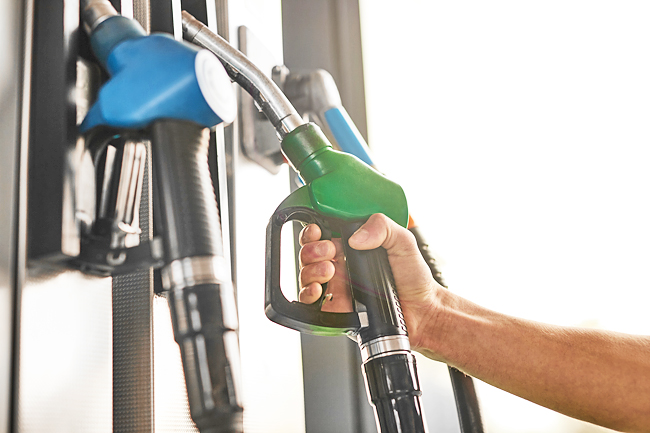Mangai Balasegaram
ANN/THE STAR – I am not a fearful person. But there is one thing that sends a deep chill down my spine: the warming of the planet.
The facts are a sorry collection of superlatives and shocking extremes. Consider: the eight warmest years on record are the past eight years, the World Meteorological Organization reported.
We’ve also seen the “worst ever” floods, rains, storms, droughts, and wildfires in countless countries. The extreme weather events are endless.
The latest report by the Intergovernmental Panel on Climate Change (IPCC), based on the consensus of 700 scientists, is bone-chilling.
It warns we must act now to prevent irrevocable change – greenhouse gas emissions must be cut by HALF by 2030 (from 2019 levels), to prevent global warming of over 1.5 degree Celsius. The figure is the lofty climate goal that is the nexus of climate science and politics.
Above it, we face catastrophic change.
Coral reefs, for example, will all die. The IPCC report says, with 1.5 degree Celsius warming heatwaves that arose once in 10 years on average will likely be 4.1 times more frequent.

The planet has already warmed by 1.1 degree Celsius and look at the many extreme weather events we’re having. Already, half the global population faces water scarcity for at least one month a year currently. Any fractional increase of warming will exacerbate that.
What’s more, scientists say that above 1.5 degree Celsius, there are probably dangerous tipping points which, when crossed, could trigger irreversible critical changes that further amplify warming, such as the melting of permafrost or Antarctic ice sheets.
To stay below 1.5 degree Celsius, global emissions should peak by 2025, which means severely cutting the use of petrol, gas and coal now. That looks highly implausible. But it’s not impossible if there is a radical shift.
The technology is there and solar energy is very cheap.
United Nations secretary-general António Guterres urges all to take action, in “everything, everywhere, all at once”. We must all examine our carbon footprints – saying our part is too minuscule to matter is a cop-out. Because going with business as usual will land us with more extreme weather.
The most critical change in Malaysia must come from the energy sector, which accounts for the bulk of the country’s emissions.
According to climateanalytics.org and the International Energy Agency, in September 2021, fossil fuels made up about 82 per cent of Malaysia’s energy mix. The plans to shift that mix are incremental and not near-term at all. That has to change.
One option taking off globally is carbon pricing. Putrajaya is apparently “evaluating” it, and Bursa Malaysia has launched a voluntary carbon market scheme for companies.
The basis of this is that fossil fuels, especially coal, have hidden external costs in climate change and air pollution. (One study found the true cost of coal should be twice as high.)
So those using fossil fuels should pay a price – calculated by each tonne of carbon dioxide emitted. You pollute, you pay. This serves as an incentive to shift to cleaner fuels. And it provides revenue. Singapore is expecting to collect SGD1 billion across five years from carbon taxes.
But can Malaysia do this? The energy sector here massively favours independent power producers (IPPs). They have enjoyed lucrative power purchasing agreements (PPAs), described by some as “lopsided” as they favour the IPP rather than the public (or the environment) and transfer costs to the consumer.
These binding PPAs are a hard roadblock to carbon pricing.
They also leave us little wiggle room for a transition to cleaner fuels. And they are inefficient and outdated.
Previously, there was a proposal to amend the Electricity Supply Act to make players more accountable and to distribute costs more evenly (rather than pass them on to consumers).
It’s time we look at amending the Act again and review power purchasing agreements.
We could negotiate to retire coal plants early, perhaps before a major maintenance, and offer compensation. Yes, the government will need good lawyers. Yes, it’s radical – but consider what’s at stake.
“There have been suggestions to buy over IPPs and cancel PPAs, but this only solves one part of the problem… What about investments in renewables? The energy transition has to be done in a just and orderly manner,” said climate expert Renard Siew.
We need to act quickly as these are mega moves which take time to manoeuvre.
In the meantime, we can all do our bit for energy efficiency because, individually, we waste a staggering amount of electricity. We’ll save money too.
Then there is the fuel subsidy. Rather than tax the use of carbon, we incentivise it with a fuel subsidy! It’s supposed to be “for the poor” but of the MYR50 billion spent by the government on fuel subsidies in 2022, 76 per cent benefitted the high and middle income groups, with only 24 per cent benefitting the lower income group, Deputy Finance Minister Ahmad Maslan said last month.
Raising prices will not be a popular move, but our petrol is cheap – the RON95 petrol price is higher in neighbouring countries (hence the many cases of smuggling petrol over our borders).
We can try to cushion the costs for the poor but this subsidy is sheer madness.
It’s make or break time now. We’ve been warned. Malaysia, we need to step up.





